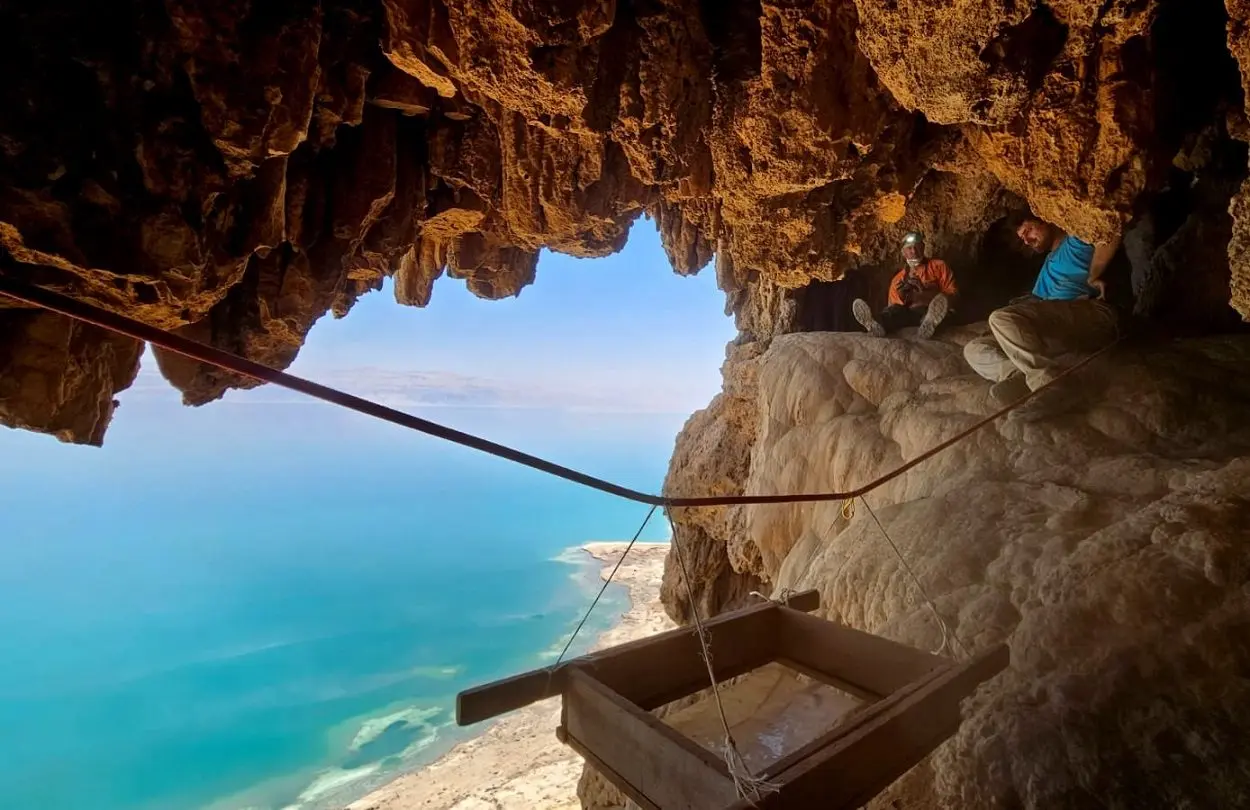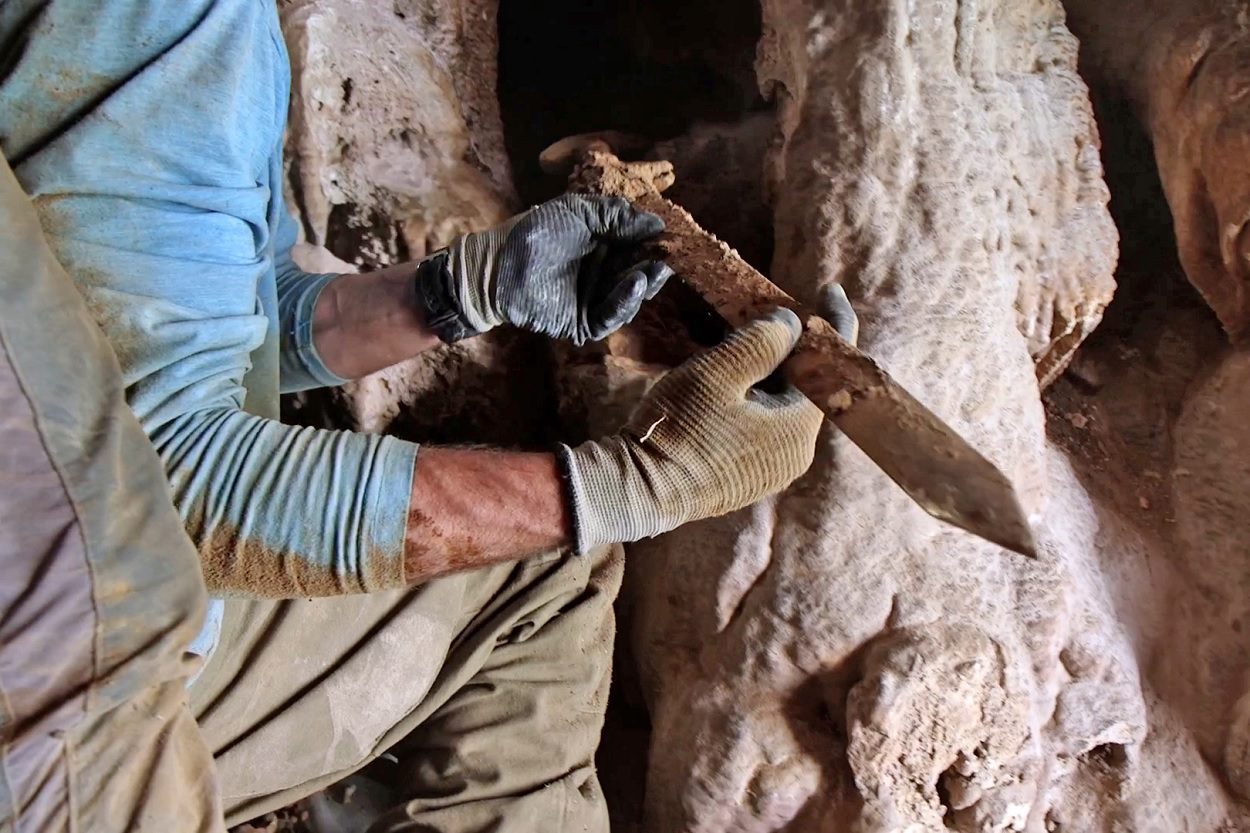Archaeologists have discovered a cache of Roman swords deposited in a cave in the Judean Desert.
According to a press announcement by the Israel Antiquities Authority (IAA), the discovery was made while researchers were inspecting a known Hebrew script inscription written on the walls of a small cave in the En Gedi Nature Reserve, Israel.
While on the upper level of the cave, Asaf Gayer from Ariel University, spotted an extremely well-preserved Roman pilum in a deep narrow crevice. He also found pieces of worked wood in an adjacent niche that turned out to be parts of the swords’ scabbards.
Upon notifying IAA, archaeologists have recovered four well-preserved swords that date from the Roman period around 1,900-years-ago.

According to the researchers, the swords were likely hidden by Judean rebels as booty during the Jewish–Roman wars, a series of large-scale revolts by the people of Judaea against the Roman Empire (AD 66 to 136). The Jewish-Roman conflicts inflicted a profound and tragic toll upon the Jewish community, leading to their shift from a prominent Eastern Mediterranean populace to a scattered and oppressed minority.
Due to the conditions in the cave, the swords are exceptionally well-preserved, with three still having the wooden scabbards attached to the iron blade. These three swords measure 60–65 centimetres in length and have been identified as Roman spatha swords, a straight bladed sword commonly in use by the Romans from the 1st to 6th century AD. The fourth sword is shorter in length and has been identified as a ring-pommel sword.
“The hiding of the swords and the pilum in deep cracks in the isolated cave north of ‘En Gedi, hints that the weapons were taken as booty from Roman soldiers or from the battlefield, and purposely hidden by the Judean rebels for reuse,” says Dr. Eitan Klein, one of the directors of the Judean Desert Survey Project. “
“Obviously, the rebels did not want to be caught by the Roman authorities carrying these weapons. We are just beginning the research on the cave and the weapon cache discovered in it, aiming to try to find out who owned the swords, and where, when, and by whom they were manufactured. We will try to pinpoint the historical event that led to the caching of these weapons in the cave and determine whether it was at the time of the Bar Kokhba Revolt in AD 132–135,” added Dr Klein.
Header Image Credit : IAA





